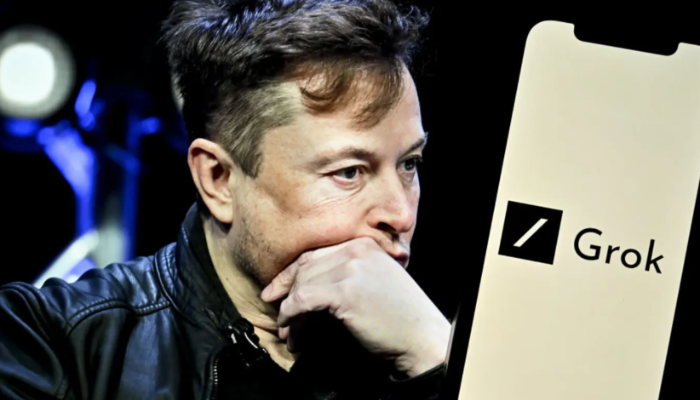
The future of work in 2025 will be marked by major shifts toward flexibility, lifelong learning, and a wellness-focused culture. As industries grapple with the post-pandemic landscape, many organizations are still debating the balance between remote work and returning to physical offices. However, the speed at which innovation is unfolding suggests that new work models will become solidified, moving beyond the pandemic era’s uncertainties.
Astrologers and trend analysts, such as Ophira Edut, have turned to ancient wisdom to predict the future. By studying mundane astrology, which examines the cosmic influence on global events, these experts have identified patterns and cycles that could shed light on the evolution of the workforce in the coming years. With more than 60% of younger generations, particularly Gen Z and Millennials, using astrology as a serious tool for career planning, it seems that a new approach to work and leadership is emerging.
The trend toward hybrid, fractional, and remote work will continue to gain traction in 2025. Companies are increasingly recognizing the need for part-time executives and flexible work arrangements. However, there will be a struggle as some employers attempt to bring workers back into the office, only to find that remote work has led to increased productivity and engagement. Data from companies like Pinterest suggest that remote work enhances employee satisfaction, making it clear that flexible work arrangements are here to stay.
To make offices more appealing and draw employees back, companies may start offering unique perks such as private chefs for on-site meal preparation, or office spaces designed to ease daily stresses—like apartments with bathrooms, showers, and kitchens, blending the comfort of home with the benefits of office work. These perks will help companies meet the demands of a more flexible workforce.
As the job market becomes more dynamic, workers are increasingly adopting portfolio-based careers, where they hold multiple roles across different industries. This reflects the growing value placed on diverse skill sets, allowing employees to work across various sectors without being confined to a single job title. In 2025, employees may no longer be boxed into one role but could combine skills such as accounting, photography, and business development, which will increase flexibility and job satisfaction.
With the rapid pace of technological advancements, continuous learning will become a staple of the workforce. Companies will increasingly invest in the ongoing education of their employees by offering micro-certifications, short courses, and digital boot camps. This focus on reskilling and upskilling will not only help employees stay competitive but will also give companies a competitive edge by maintaining a skilled, adaptable workforce.
Paid educational programs could become a key employee benefit, particularly in larger companies. Employees may also take advantage of these programs to pivot to new roles or industries, creating a culture of constant growth and adaptability.
As workers shift in and out of roles, and hybrid offices become the norm, companies will need to find new ways to foster a sense of belonging and unity among employees. Traditional office setups are no longer the central hub of social interaction, as remote work and virtual meetings take precedence. Periodic offsite retreats and team-building events could play an essential role in cultivating company culture, offering employees opportunities for in-person bonding and connection.
These offsite events may also take on new forms, such as hosting gatherings in boutique hotels or vibrant neighborhood locations, designed to inspire creativity and teamwork.
As we move deeper into the decade, the future of work will bring a shift toward wellness-centered office designs. Office buildings will no longer prioritize just functional spaces but will incorporate open-air terraces, rooftop gardens, and natural lighting to improve employees’ mental and physical well-being. Greenspaces, air-purifying plants, and biophilic design—where architecture blends seamlessly with nature—will be in high demand.
These wellness-focused offices could include outdoor meeting spaces, Wi-Fi-enabled terraces, and even pools. The emphasis will be on creating environments that enhance both productivity and well-being. The days of cold, impersonal office environments will give way to spaces designed for comfort, creativity, and collaboration.
In 2025, we may see workplaces reimagining their physical spaces to feel more like home. Offices will feature communal areas with comfortable furniture, wellness rooms, and family-friendly zones. This will not only create a more nurturing atmosphere but also provide employees with a greater sense of belonging.
Additionally, more companies may introduce family-friendly policies, such as on-site childcare or family days, to ensure a work-life balance that accommodates employees’ personal lives. These initiatives aim to foster a workplace culture rooted in compassion and shared values.
For remote workers, strategies like “body doubling”—working alongside another person to enhance focus—could become a popular productivity technique. In this era of constant distraction, workers will seek ways to stay focused and accountable, even if they are not physically in the same space. Virtual offices in the metaverse may also rise in popularity, offering remote teams a new environment to work together.
The future of work in 2025 will also see a greater emphasis on transparency and ethical practices, particularly regarding AI and data privacy. As companies increasingly integrate AI into their operations, ethical guidelines for its use will become a priority. Employees will demand clear policies on data collection, surveillance, and AI deployment, ensuring their privacy is respected and their rights protected.
In this new era of work, emotional intelligence (EQ) will be just as important as technical skills. Leaders with high EQ will be better equipped to manage diverse teams, address conflicts, and foster collaboration. As five generations of workers share office space, leaders will need to embrace different communication styles and values to maintain harmony and unity within their teams.
The next few years will witness a resurgence of innovation-driven growth as the workforce becomes more decentralized, and technology continues to shape the knowledge economy. Younger generations will flood the workforce, bringing new perspectives and values, which will further decentralize power and encourage more employee-driven initiatives.
As the world enters a new cycle, reminiscent of the first Industrial Revolution, the workplace of 2025 will be one of collaboration, innovation, and rapid technological growth.







